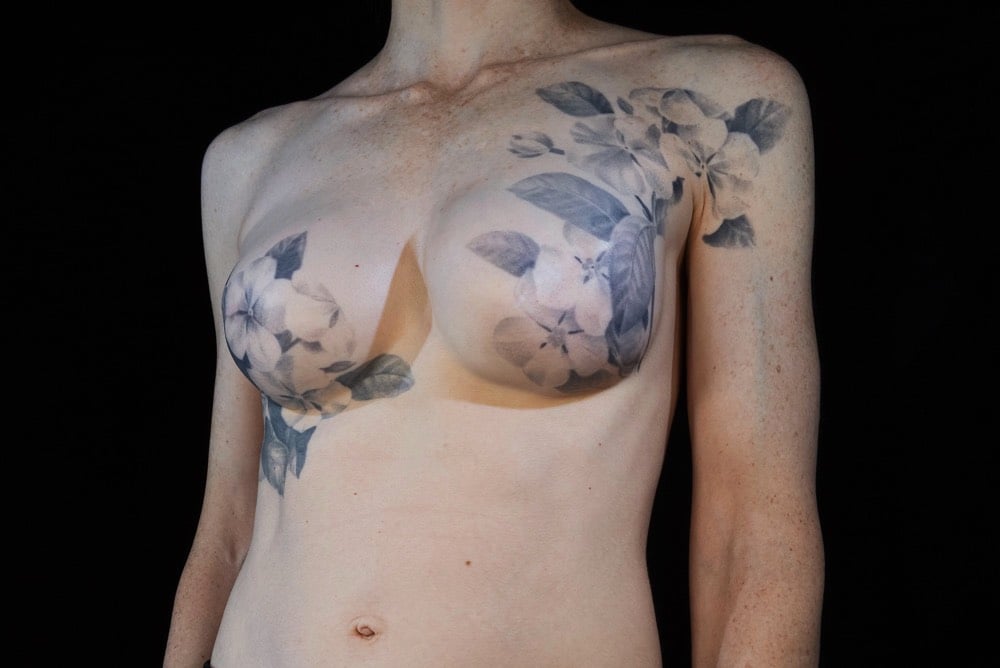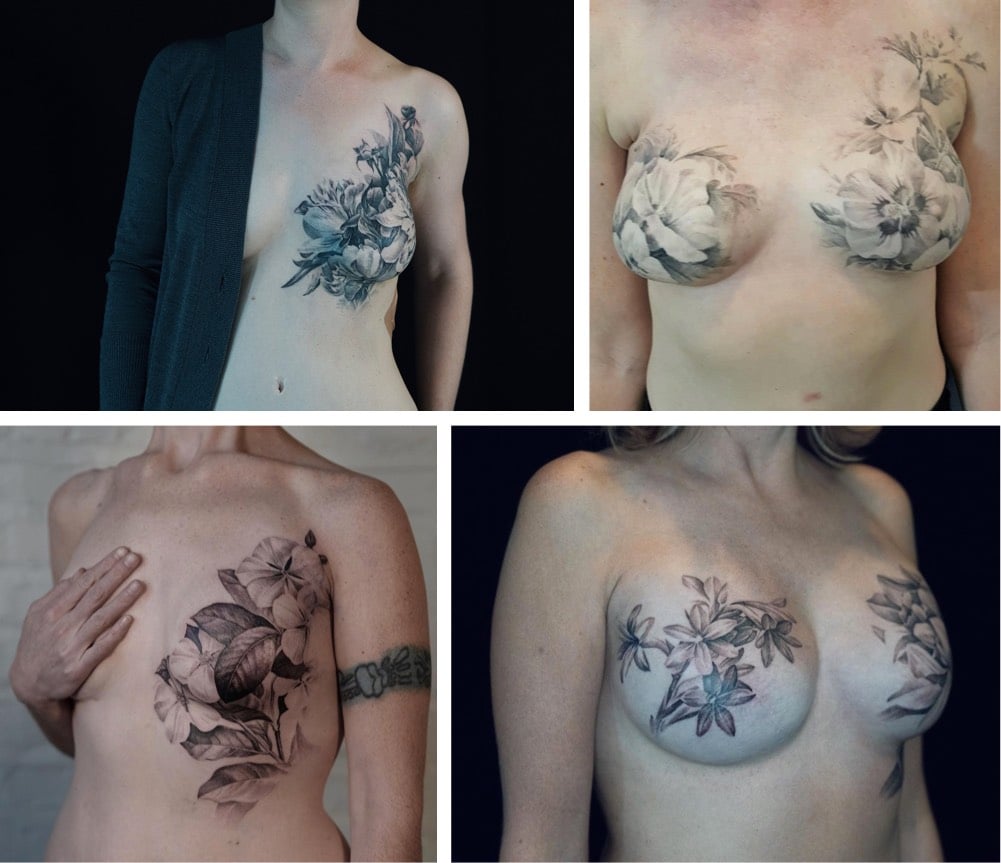

David Allen is a tattoo artist who does postmastectomy tattooing. He works with women who survive breast cancer to design and implement tattoos that cover scarring from mastectomies, transforming what might be seen as a destructive disfigurement into something creative and beautiful. Here’s Allen writing for The Journal of the American Medical Association (abstract):
I am a tattoo artist who works with women after they’ve had mastectomies to transform their sense of disfigurement and loss of control into feelings of beauty and agency. On a good day, I can heal with my art.
The women with breast cancer with whom I work share a feeling that they’ve been acted upon — by cancer, the health industrial complex and its agents, the sequelae of their treatments. Their physical and psychological points of reference are destabilized, having changed so quickly. A successful tattooing experience establishes a new point of reference, a marker that’s intimately theirs that replaces their sense of rupture and damage with an act of creation and, in my work, images of natural life.
Allen even does “solidarity tattoos” for his clients’ partners and friends. You can see more of his postmastectomy work on Instagram.
Cory Doctorow was an early adopter of the lifehacking lifestyle and toolkit, including David Allen’s book, Getting Things Done.
Allen’s book is a fantastic and inspiring read. The core of his philosophy is to recognize that there are more things in the world that you want to do than you could do, and that, in the absence of a deliberate approach to this conundrum, you are likely to default to doing things that are easy to scratch off your to-do list, which are also the most trivial. After a lifetime of this, you’ll have accomplished a lot of very little.
Allen counsels deliberate, mindful prioritization of this list, jettisoning things on the basis that they are less satisfying or important than the other things you’d like to do - even if those other things are harder, more time consuming and less likely to result in a satisfying chance to scratch an item off the list.
After living and working this way for more than a decade, Doctorow reports that there’s a conflict between the optimization of your time via getting things done and the sort of experimental playtime you often need to do creative work.
The corollary of this is that it gets much, much harder to winnow out activities over time. Anything I remove from the Jenga stack of my day disturbs the whole tower.
And that means that undertaking new things, speculative things that have no proven value to any of the domains where I work (let alone all of them) has gotten progressively harder, even as I’ve grown more productive. Optimization is a form of calcification.
Quinn Norton wrote an essay called Against Productivity in which she moves to Puerto Rico to focus on working productively but ends up goofing off and discovering a new career & life path in the process.
I visited with new friends, and tooled around on the net (albeit always at 2G speeds). I watched rain fall. I cooked. I considered the shape of the buildings a lot, and looked after cats periodically. I walked to old forts and lookouts. At one point I took pictures of doors for no reason I could discern. I berated myself for being unproductive, for wasting this precious time I’d set aside to put my professional life together. I spent hours anxious to craft my time to be quantitatively better for writing. Then it all collapsed, and the only habit I fell into was depressive empty afternoons when I was alone with the cats and the rain. But I also, and wholly by accident, thought the thoughts that would take my career and life in a new and unimagined direction.
I was chatting with a friend on the phone today about a talk we’re doing together in a couple weeks and she brought up the same issue, unprompted. She’s a naturally productive person who finds herself with some free time, yet she’s finding it difficult to not stay busy, even though she knows she needs the mind-wandering time to replenish her creative reserves. I struggle with the same thing. I get more done in less time than I ever have, but sometimes I feel like there’s nothing creative about my work anymore. Sure, I make the doughnuts every day but am not inventing the cronut. How do you accomplish your work but also leave ample time for letting your creative mind off the leash?







Stay Connected